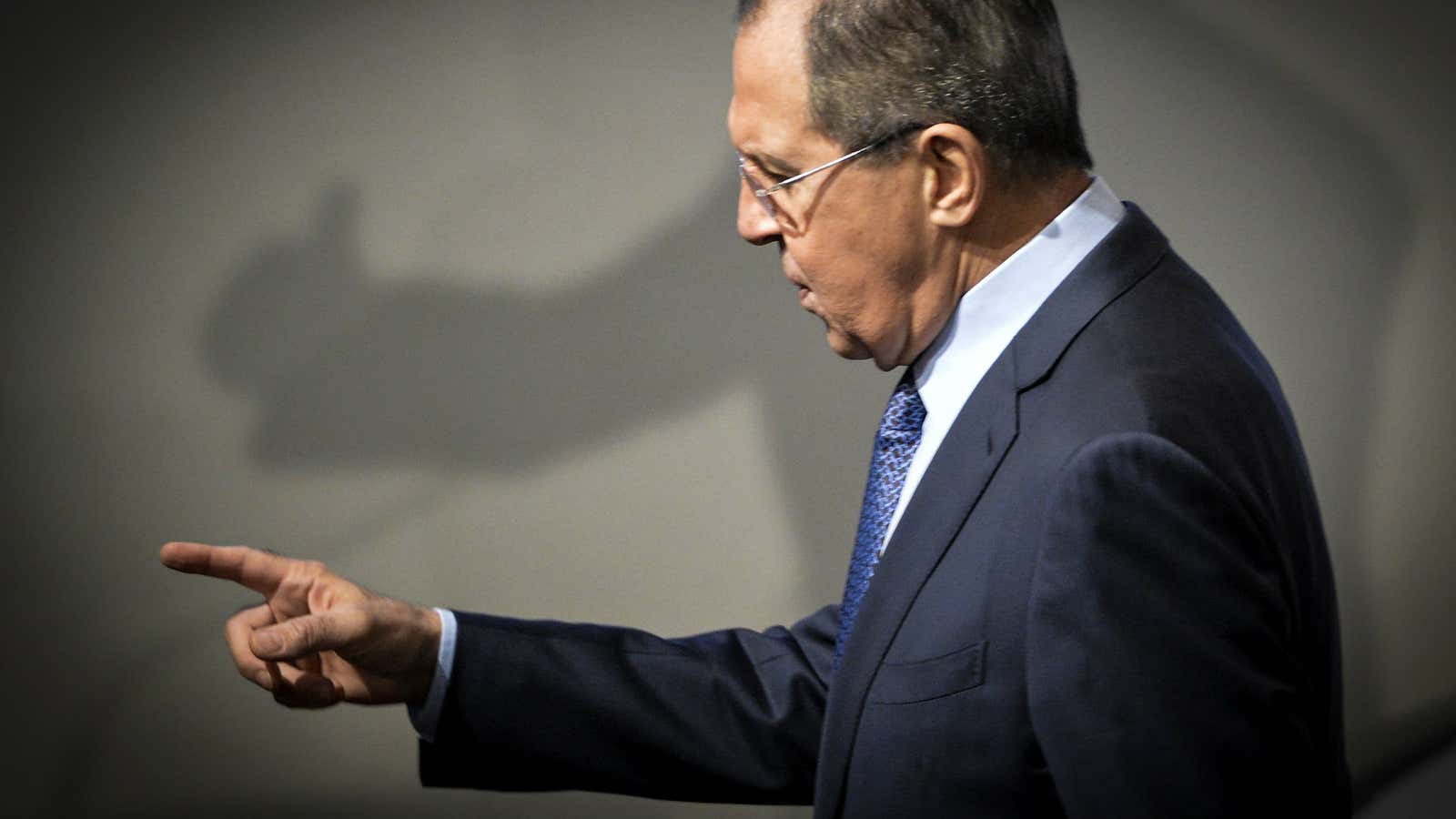“Fake news” was top of the agenda at a security summit in Munich today, as officials from Russia and NATO countries traded accusations of spreading disinformation. Russian foreign minister Sergei Lavrov told the assembled leaders that Russia sought a “post-fake era” and a “post-West world order.” Leaders in attendance included German chancellor Angela Merkel and US vice president Mike Pence.
Lavrov’s comments came after a top NATO official, Czech general Petr Pavel, told Reuters that Russia was responsible for a fabricated report about German soldiers committing a rape a Lithuania. Pavel warned that Russia would likely produce more “fake news” like this as part of a propaganda campaign to influence public opinion against the military alliance. An investigation has been launched in Lithuania.
NATO has been strengthening its forces in eastern European states that share borders with Russia, by recently stationing German troops in Lithuania, with further deployments planned for Estonia, Latvia, and Poland. Russia’s propaganda campaign is a response to the increase in NATO forces, Pavel said.
Last week, a report from Estonia’s foreign intelligence service, devoted exclusively to Russia, detailed the ways that Russia relied on the doctrine of “information confrontation” to influence European affairs. Russia uses a “mix of truth and lies” to spread disinformation, and relies on populist parties in Europe to amplify the message, the report said.
The Munich summit was the first meeting between many European leaders and the Trump administration. Vice president Mike Pence said the US would maintain an “unwavering commitment” to NATO. His remarks were echoed by secretary of state Rex Tillerson and defense secretary James Mattis.
But Pence also complained about NATO’s cost to the US, calling on other NATO members to spend more on their militaries. He accused some of America’s ”largest allies” of not having a “credible path” for paying their share of NATO’s bills. His speech was greeted with “lukewarm applause,” according to the Guardian. Alliance members commit to spending 2% of GDP on defense, but only four of 28 members besides the US currently meet this measure (pdf).
Pence spoke after Merkel, who said Germany remained committed to hitting the 2% target eventually. Berlin currently spends 1.2% of GDP on defense, a proportion that former US president Barack Obama complained about in the past. Merkel used her speech to emphasize the need for global cooperation in a “networked world,” addressing fears that Trump’s “America First” policies could lead to a dangerous decline of Western leadership in the world.
The summit’s organizers neatly summarized all of these worries in the title of their annual report: “Post-Truth, Post-West, Post-Order?“




